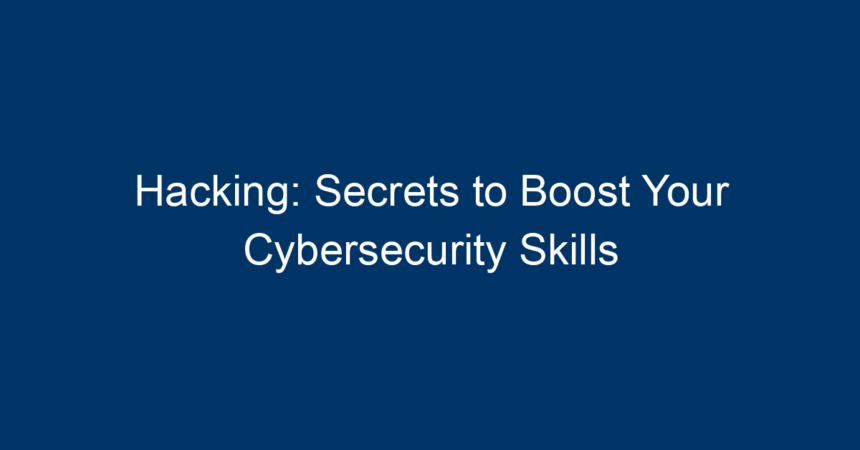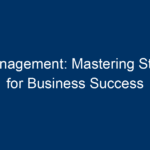In today’s digital world, the term "hacking" often carries a negative connotation. However, when viewed through the lens of cybersecurity, hacking can be a powerful tool for protecting systems and sensitive information. As cyber threats evolve, the demand for cybersecurity professionals is at an all-time high. This article explores the secrets to enhancing your cybersecurity skills through hacking techniques, ethical considerations, and practical applications.
Understanding Hacking
Hacking involves exploring the intricacies of computer systems to discover vulnerabilities and weaknesses. At its core, hacking can be categorized into three types:
- White-Hat Hacking: Ethical hackers who use their skills to improve security systems.
- Black-Hat Hacking: Malicious hackers who exploit vulnerabilities for personal gain.
- Gray-Hat Hacking: Individuals who may violate ethical standards but without malicious intent.
Understanding these distinctions is crucial for anyone looking to delve into cybersecurity as a career.
Why Hacking Skills Are Essential
The Cybersecurity Landscape
With cyberattacks increasing by the minute, organizations face significant risks to their data and systems. According to recent studies, cybercrime damages are projected to exceed $10 trillion globally by 2025. As a result, possessing hacking skills is essential not only for personal career growth but also for ensuring organizational safety.
Skill Set Enhancement
Acquiring hacking skills empowers you to:
- Identify Vulnerabilities: Learn to discover potential vulnerabilities in systems and applications.
- Respond to Threats: Understand the tactics used by malicious actors to devise effective countermeasures.
- Implement Security Measures: Gain hands-on experience in deploying security solutions.
Getting Started with Hacking
Educational Resources
Before diving into hacking, you must arm yourself with the necessary knowledge. Here are some top educational resources to consider:
Online Courses
- Cybrary: Offers a range of free courses on ethical hacking.
- Coursera: Provides specialized courses from renowned universities.
- Udacity: Features nanodegree programs focused on cybersecurity.
Books
Some recommended reads include:
- "The Web Application Hacker’s Handbook" by Dafydd Stuttard and Marcus Pinto.
- "Hacking: The Art of Exploitation" by Jon Erickson.
- "Penetration Testing: A Hands-on Introduction to Hacking" by Georgia Weidman.
Practical Tools and Software
Familiarizing yourself with hacking tools is crucial. Here are some popular tools used by professionals:
- Nmap: A powerful network scanning tool.
- Wireshark: An open-source packet analysis tool.
- Metasploit: A penetration testing framework that helps identify vulnerabilities.
Explaining these tools not only showcases your technical skills but also enhances your cybersecurity toolkit.
Developing Essential Hacking Skills
Networking Fundamentals
To become proficient in hacking, a solid understanding of networking principles is vital. Familiarize yourself with concepts like:
- TCP/IP Suite: Understand how data travels over the internet.
- Firewalls and VPNs: Learn how these technologies protect networks.
- Common Protocols: Knowledge of protocols like HTTPS, FTP, and SSH is fundamental.
Programming Skills
Programming languages are the backbone of hacking. Here are a few languages worth mastering:
- Python: Widely used for scripting and automation tasks.
- JavaScript: Key for web-based hacking and exploiting vulnerabilities.
- C/C++: Important for understanding low-level system operations.
Operating Systems Proficiency
Familiarity with different operating systems will also enhance your hacking skills. While Windows is prevalent, Linux distributions like Kali Linux are extensively used in the hacking community for their array of tools and security applications.
Ethical Hacking Certifications
Earning certifications not only boosts your credentials but also deepens your understanding of ethical hacking. Here are some popular certifications:
- Certified Ethical Hacker (CEH): Covers various hacking tools and techniques.
- CompTIA Security+: An entry-level certification focusing on security practices.
- Offensive Security Certified Professional (OSCP): A hands-on certification recognized in the industry.
Pursuing these certifications demonstrates your commitment to ethical hacking and cybersecurity.
Real-World Application of Hacking Skills
Bug Bounty Programs
Participating in bug bounty programs can significantly improve your hacking skills while also giving you the chance to earn rewards. Major companies like Google and Facebook offer programs where ethical hackers can report vulnerabilities. Engaging in these programs allows you to work on real-world applications and sharpen your skills.
Capture The Flag (CTF) Competitions
CTF competitions are excellent for honing your problem-solving and hacking skills. They present various challenges that mimic real-world hacking scenarios. By participating, you can gain valuable experience, learn from peers, and even win prizes.
Staying Updated in the Cybersecurity Field
The cybersecurity landscape is continually changing. Staying informed about the latest cyber threats and security trends is essential. Here are a few ways to stay updated:
- Follow Blogs: Websites like Krebs on Security and the SANS Institute offer informative content.
- Podcasts: Shows like "Cyber Security Podcast" can keep you in the loop while on the go.
- Webinars and Conferences: Attend industry conferences to network with professionals and gain insights from experts.
Conclusion: Actionable Insights to Boost Your Cybersecurity Skills
Hacking can be a powerful ally in the fight for cybersecurity. By developing your skills in ethical hacking, networking, programming, and real-world applications, you set yourself on a path to success in this fast-growing field.
To summarize, here are your next steps:
- Educate Yourself: Enroll in online courses and read relevant books.
- Practice Regularly: Engage with practical tools and participate in CTF competitions.
- Earn Certifications: Pursue recognized certifications to validate your knowledge.
- Stay Informed: Follow industry news and updates to keep your skills relevant.
By taking these actionable steps, you’re not just boosting your cybersecurity skills; you’re also contributing to a safer digital landscape. Embrace the world of hacking, not just as a career but as a mission to protect vital information and assets.
By incorporating diverse strategies and practical skills, you can excel in the cybersecurity arena and be part of the solution, ensuring that the digital world remains secure for everyone.




